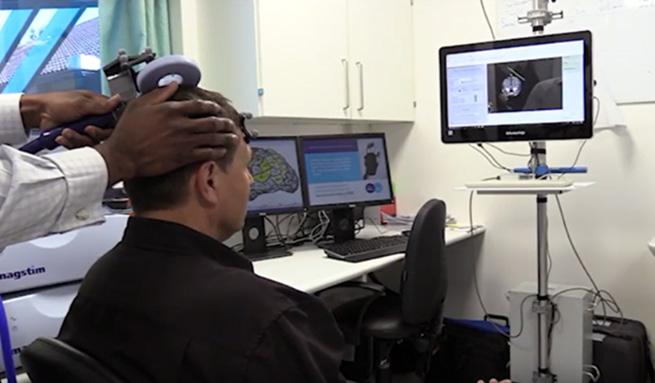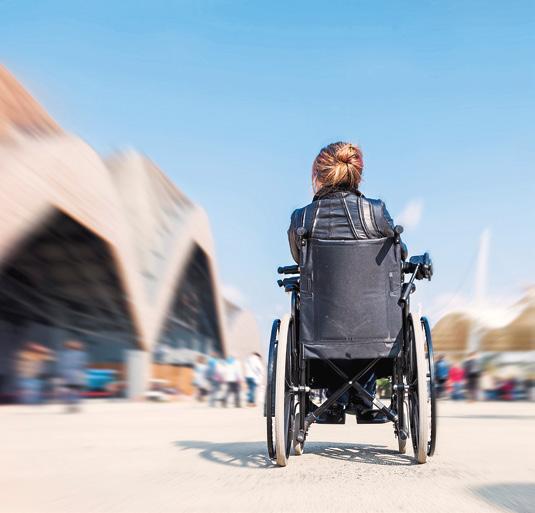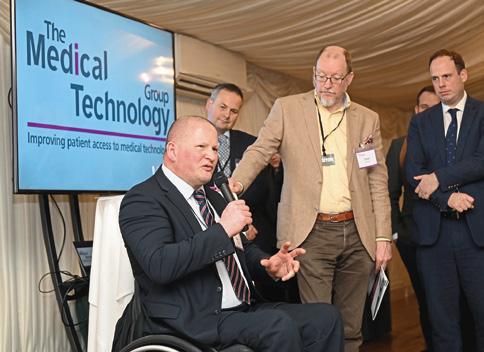
3 minute read
THIS IS IMPROVING BOWEL CARE FOR SCI PEOPLE
One of the greatest concerns spinal cord injured people have about going into hospital is how well they’ll be supported in managing their bowels whilst away from home and their normal routines.
Helping people in a medical setting with their toileting needs might seem straightforward nowadays but as SCI people know only too well, that’s far from the case.

Back in 2016, SIA was instrumental in highlighting our members' experiences of poor bowel care in hospital settings to NHS Improvement. Our now ex-chair of trustees, Dr Rupert Earl, and SCI nurse specialist Carol Adcock led the calls for a Patient Safety Alert (PSA) to be issued to all NHS Trusts. After two years of hard campaigning, the PSA was finally issued in July 2018.
We followed up by writing to all Trust CEOs with a draft SIA Bowel Care Policy for them to adapt and use as necessary, and by developing a joint position statement with the Multidisciplinary Association of Spinal Cord Injury Professionals (MASCIP), the British Association of Spinal
It will take time to bring about the changes we want to see, but as the Chinese proverb says, “A journey of a thousand miles begins with a single step.” We will keep you posted on developments over the next few months, but to find out more in the meantime please contact SIA’s campaigns manager, Dave Bracher, at: d.bracher@spinal.co.uk having a bowel care policy, so that nurses and healthcare professionals can focus on their responsibility to give high quality bowel care to their patients


SCI people knowing how to raise an anonymous complaint to the NHS through the official channels about poor bowel care, or any care with the potential to cause harm, and to use SIA’s draft template letter to report the issue separately to the NHS Trust

SCI people reporting any instances of poor bowel care in a nonspecialist hospital to SIA, so you can support us to bring about change Parliamentarians understanding the vital importance of decent bowel care provision for SCI people, and the terrible consequences if this isn’t provided.
For More Information


An Emergency Care Plan (ECP) is completed with one of SIA’s SCI nurse specialists and details essential SCI care needs relating to your bowel, bladder, skin, respiration and, where appropriate, autonomic dysreflexia. If you are interested in completing an ECP, more details and a booking form can be found here or you can scan the QR code below spinal.co.uk/ecp-booking/
I’VE NEVER FELT SO HUMILIATED
Sue Evans, 69, sustained a T10 spinal cord injury after a car accident in 1976 when she was 22. Here she shares her experience of bowel care during a stay in hospital

“I broke my leg back in 2019 and spent 12 weeks in hospital where my leg was put into an open brace. I was told if I needed to use the toilet, I had to use a bedpan. That was impossible – you’d have to be a contortionist to do that being SCI and with your leg in a brace!
"I contacted SIA and they arranged for someone to come and train one of the nurses on the ward in bowel care. But when I didn’t receive any help after that I rang SIA again, this time in tears. One of their specialist nurses contacted the ward sister to advise on appropriate care but I was then told that the hospital weren’t allowed to do bowel care.
"I was instructed to get on with my own bowel care even if that meant messing the bed. I couldn’t lift onto a bedpan and so of course I soiled myself many times. I’ve been spinal cord injured for over 40 years and have never felt as humiliated and frustrated as I did then.
"Nobody seemed to want to help me. I remember one morning, messing the bed and waiting to be cleaned up. After about an hour the doctor came by on his rounds but said he couldn’t assess me until I was cleaned up so I didn’t get to see him that day. It was terrible.
"This was the first time I’d been admitted to a general hospital as, after my injury, I rehabilitated at a spinal unit.
I’m now terrified about going into hospital again. It’s so important that staff are properly trained. Some nurses need to understand that being paralysed doesn’t just mean you can’t walk, it means things like your bladder and bowel don’t work like they used to and you need help with those things.”







